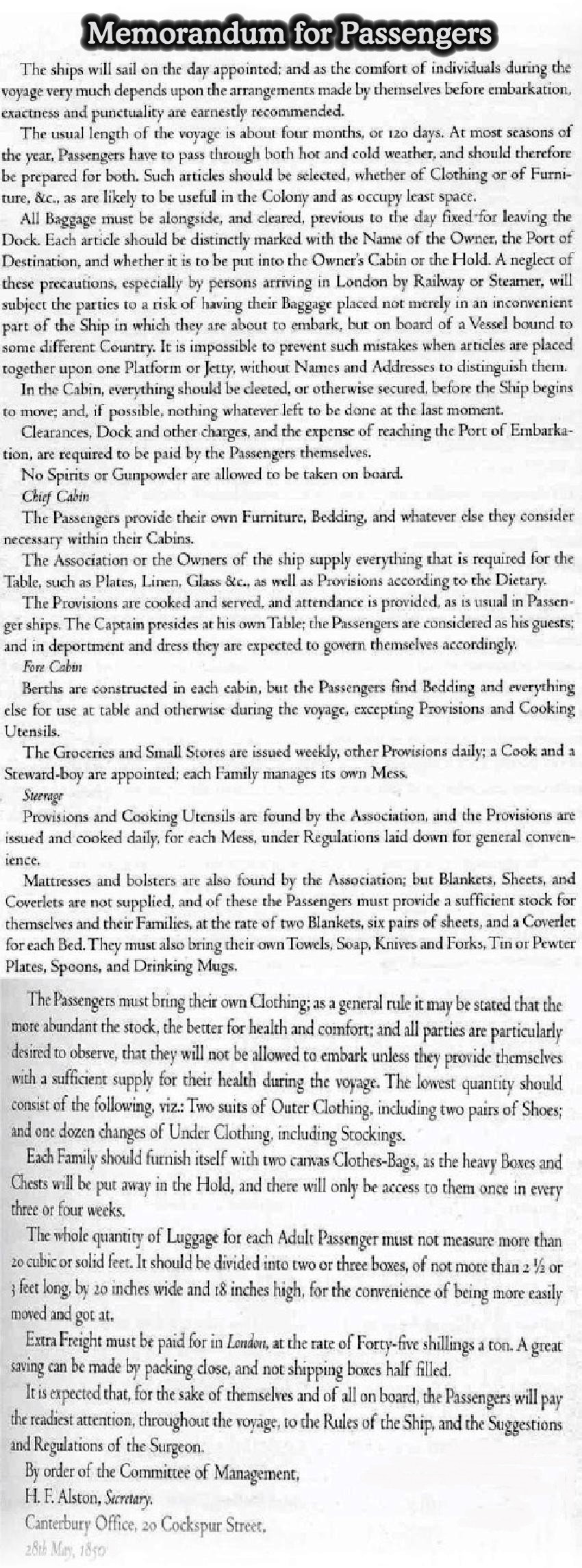









|
Castle Eden - Passenger Memorandum  P42: The Summer Ships - Author: Colin Amodeo
 
Diet supplied by the Association was nourishiing
rather than dainty. Each passenger consumed about 16 lbs weight of food each week and
between cooking and drinking, 21 quarts of water. Washing was done in salt
water. There was 3 1/2 lbs of salt meat and 5 1/4 lbs of biscuit. But, as
passengers did their own cooking, much food was wasted and in the Castle
Eden's case, much proved unfit for use. The rations were served out to the passengers every few days
and it seems from all accounts that there was never enough due mainly to
the poor allowance provided for children nearing adulthood. The diet
consisted of about four ounces of preserved meat for each adult and
three potatoes, but two children under twelve years had only the same as
one adult (one and a half potatoes and 2 ounces of meat). The result was
that families of six children and two adults did not have enough food.
Most ships carried a small amount of live stock on board to
supplement the diet for the Captain and officers. Typically there would
be on board ten sheep, ten pigs, about thirty ducks and thirty
hens. In the galley there was an oven in which bread was baked
three times a week but there was never sufficient of it. On occasions
the cook would prepare a large pan of porridge with oatmeal. |